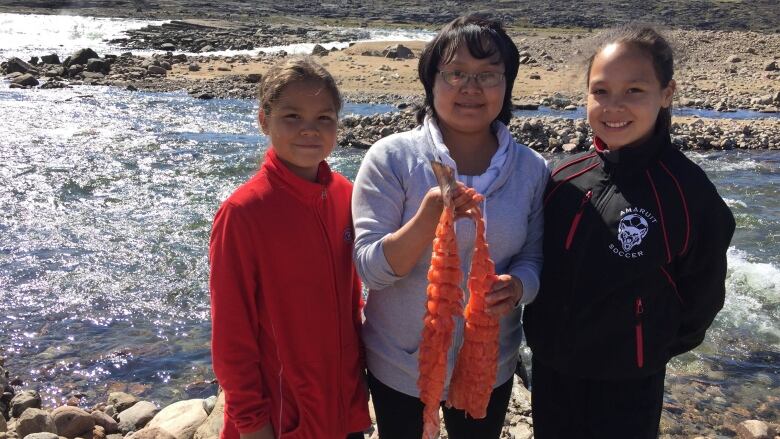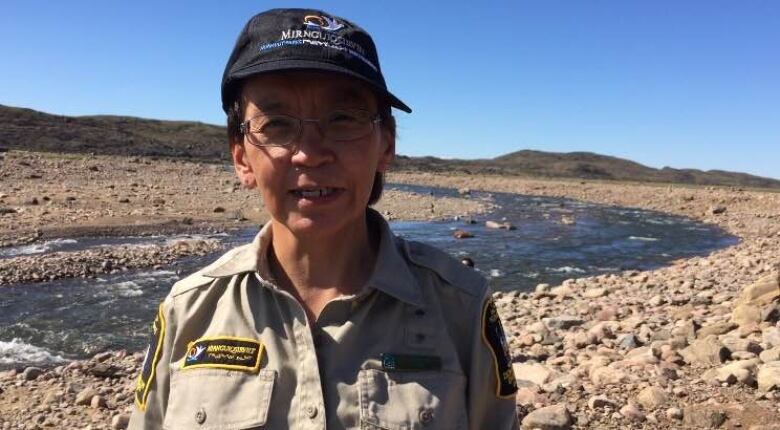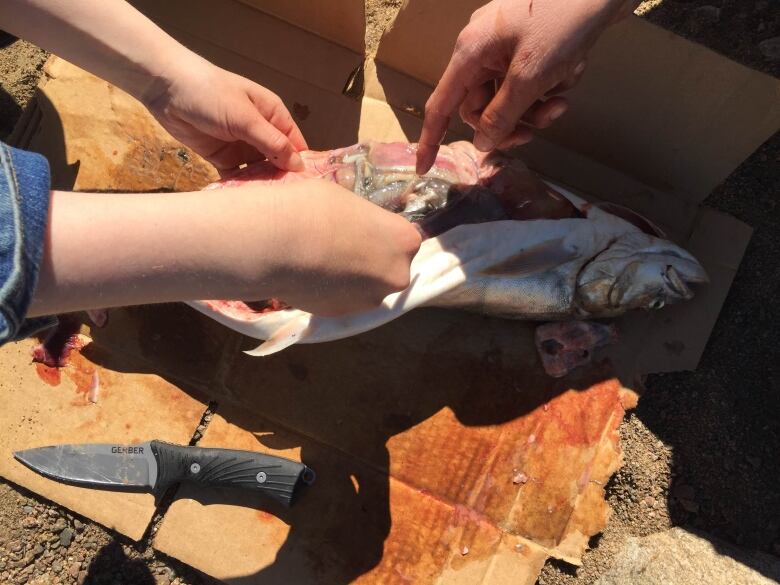From making pitsi to lighting a qulliq, parks program teaches traditional Inuit skills
Programs prove popular at Iqaluits Sylvia Grinnell Territorial Park

It's a beautiful sunny day in Iqaluit with endless blue skies after days of rain and fog, which is ideal for the crowd gathering by the river at Sylvia Grinnell Territorial Park to learn how to sample and dry Arctic char.
The Government of Nunavut's weekly summer program which started on June 22, runs every Tuesday afternoon until Aug. 23.

"It's awesome," says 13-year-old Angela Idlout-Casey, who came to the workshop with her mom and little sister.
"I came out here to learn about Inuit culture because it's really interesting to me what people do with fish and whales and all this food."
'Connected to the outdoors'

"This program is important because it gives community members different skill sets to be outdoors and be connected to the outdoors," says Leesee Papatsie, NunavutParks'heritage appreciation manager.
"Also it makes them learn some of the Inuit culture that we have to offer."

Last year the most popular workshop was the traditional walk which included lessons on traditional plants and their uses in Inuit culture.
This year the workshop on how to light a qulliq (a traditional oil lamp) and how to sample fish and make pitsi have been the most popular to date, she says.
'We get to gut fish'

Wearing her white lab coat, Angoyuak deftly measures, weighs and guts an Arctic char, allthe time explaining what scientists can learn about fish stock and their environment from what they find inside their stomachs.
"This helps to determine the stock population and how healthy it can be, it's important to know if fish are increasing or declining in water bodies throughout Nunavut," she says while weighing the char.
"I'm very interested in showing people what kind of job I do and how fun it could be.
"It's not all about science, we get to gut fish, and in the end we get to eat the fish or give it away to an elders home or a women's shelter."












_(720p).jpg)


 OFFICIAL HD MUSIC VIDEO.jpg)
.jpg)



























































































